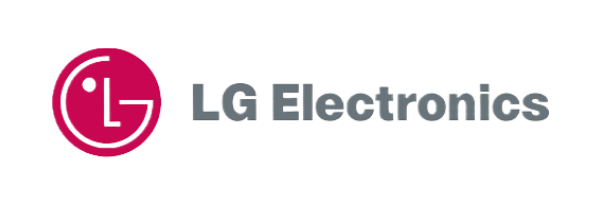Study Abroad in South Korea for Pakistani Students: How To Apply
Spain, with its rich history, vibrant culture, and world-class education system, is becoming an increasingly popular destination for Pakistani students seeking international education. The country offers a unique blend of academic excellence and cultural immersion, making it an attractive choice for those looking to broaden their horizons.

Highlights
Here are the key details related to studying in South Korea
1500+
Pakistani Students in South Korea
80%
Visa Approval Rate
430
Total Institutions
Spring (March)
Most Preferred Intake
6.0
Minimum IELTS Score
80
Minimum TOEFL (iBT) Score
PKR 21L+
Approximate Annual Study Cost
PKR 2.5L
Approximate Monthly Cost of Living
Why Choose South Korea?

Academic Excellence
South Korean universities consistently rank among the top in Asia and globally, offering high-quality education and research opportunities.

Technological Hub
Experience firsthand the country's technological advancements, from smart cities to cutting-edge research facilities.

Cultural Immersion
Dive into Korea's rich cultural heritage while enjoying modern K-pop and K-drama influences.
Wondering If Pakistan is right choice for you?

Variety of courses available in South Korea
Bachelor's Degrees
4 years
Master's Degrees
2-3 years
PhD Programs
3-5 years
Associate's Degrees
Not common in Spain
Language Programs
Varies (typically 6 months to 1 year)
Academic Calendar to study in South Korea
Here’s what to expect if you want to study in South Korea
Spring Semester (March - June)
The main academic term, featuring cherry blossoms and mild weather.
Summer Break (July - August)
A time for short courses, internships, or exploring Korea.
Fall Semester (September - December)
Another major term, with beautiful autumn foliage.
Winter Break (January - February)
Opportunity for winter sports or intensive Korean language courses.
Student Visa Requirements for South Korea
You can prepare for your South Korea education journey with these essential visa requirements
- Acceptance into a recognized Korean educational institution
- Sufficient financial resources to cover tuition and living expenses
- Clean criminal record
- Good health condition
- Valid passport
- Completed visa application form
- Certificate of Admission from a Korean university
- Proof of financial capability (bank statements or scholarship letter)
- Academic transcripts and certificates
- TOPIK certificate (if required by the university)
- Passport-sized photographs
- Health certificate (including TB test results)
- Personal statement and study plan
- Letter of recommendation (if required by the university)
Admission Requirements in South Korea
General Documents required to study in South Korea
Must be valid for the entire duration of your intended stay in South Korea.
Issued by your chosen Korean university upon acceptance.
Official records of your previous academic performance, translated into English or Korean.
TOEFL or IELTS scores, unless you’re from an English-speaking country.
TOPIK scores, if required by your program.
Demonstrating your ability to cover tuition and living expenses.
Including tuberculosis (TB) test results.
Recent, color photos meeting Korean visa photo requirements.
English Language Proficiency to Study in South Korea
South Korea universities typically accept the following English language tests:
IELTS
6.0 and above (some top universities may require 6.5 or higher)
TOEFL iBT
80 and above (requirements may vary by university and program)
Other Requirements For
- Master Program
- Bachelors Program
- Bachelor’s degree from an accredited institution
- Minimum GPA of 3.0 or equivalent (higher for competitive programs)
- Some programs may require GRE scores
- Relevant work experience may be required or preferred for certain programs
Research proposal or statement of purpose
Letters of recommendation
- High school diploma or equivalent
- Transcripts of academic records
Some universities may require SAT or ACT scores - Personal statement or essay
- Extracurricular activities and achievements may be considered
Cost of Studying in South Korea
Overview
Tuition fees in South Korea are generally more affordable compared to other popular study destinations. Public universities tend to be less expensive than private institutions.
Average tuition fee range
Bachelors
PKR 45L
Masters
PKR 52L
MBA
PKR 23L
PhD
PKR 55L
Cost of Living in South Korea
Monthly living expenses for students in the South Korea (in PKR):

Accommodation
4.5L / month

Food
5L+ / month

Transportation
75K+ / month

Other Expenses
2.5L+ / month
Scholarship for Pakistani students in South Korea
Here are the key details related to studying in South Korea
If you are going to study at a Spain university, you should be aware that tuition fees can vary depending on factors such as the type of institution, program of study, and location.
Global Korea Scholarship
6,000,000
POSCO TJ Park Foundation Scholarship
4,500,000
Korean Government Scholarship Program
7,500,000
Ewha Women's University Scholarships
3,750,000
KAIST Scholarships
6,750,000
See what our students say
Frequently Asked Questions
Yes, many universities offer programs taught entirely in English, especially at the graduate level.
While not always required, basic Korean proficiency can greatly enhance your experience and job prospects.
Yes, various scholarships are available, including the Global Korea Scholarship and university-specific awards.
Yes, international students can work part-time with permission, typically up to 20 hours per week during semesters.
South Korea is generally very safe, with low crime rates and excellent public safety measures.
On average, students should budget 700,000 to 1,200,000 KRW per month for living expenses.
Yes, graduates can apply for a job-seeking visa and may be eligible for employment in certain sectors.
International students are required to enroll in the National Health Insurance, providing access to affordable healthcare.
The process typically involves submitting academic records, language proficiency scores, and other required documents directly to the university.
Many universities offer orientation programs and cultural activities to help international students adjust to life in Korea.











